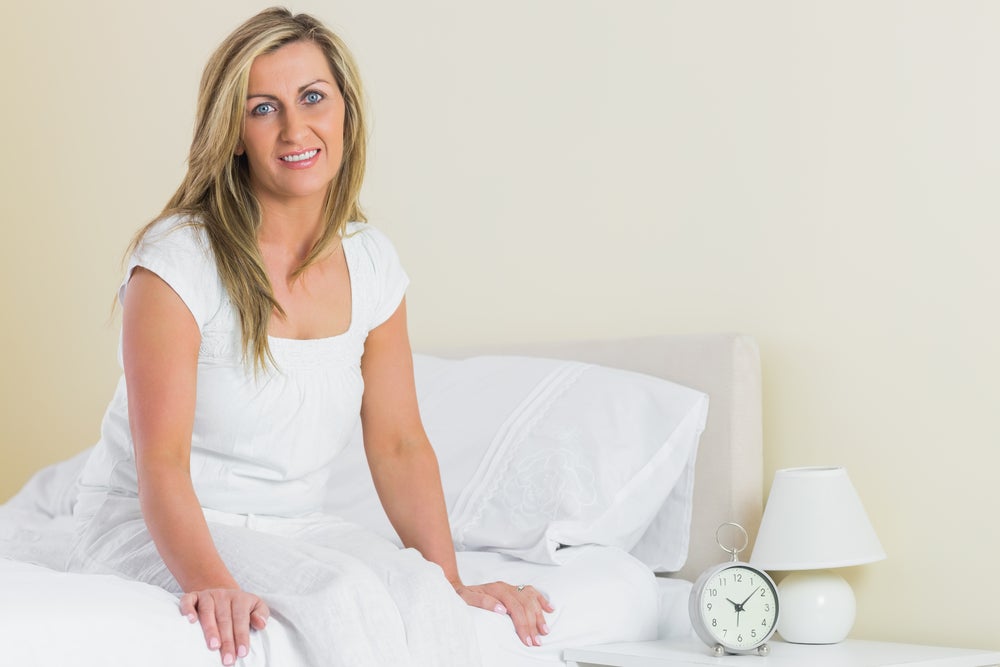Noelle’s Abdominal Hysterectomy
Abdominal Hysterectomy
Age at Surgery 46
Location: San Mateo, CA
I had a total abdominal hysterectomy eight months ago. I had two large fibroids and a large ovarian cyst. The fibroids had been causing extreme bleeding for years. (When I drove my child to school on the days when I had my period, I had to put a towel on the carseat just to make the 10-minute round trip drive.)
Because of an abnormal pap combined with the ovarian cyst, my ob-gyn thought we should remove the cervix too.
The surgery went fine, but a day after the surgery I began experiencing bladder complications and had to have a catheter. Four-days post surgery, blood started gushing from my catheter. The doctors and nurses couldn’t figure out what was going on. The bleeding went on for a couple of days, at one point filling an entire bucket with blood. It was frightening, especially since the doctors and urologist couldn’t figure out why I was bleeding so much. I stayed in the hospital for a week, went home with a catheter for one more week, and was re-admitted to the hospital for one night a few days later.
After the ordeal, I did some research and discovered that oxycontin can lead to urinary problems with some patients. I believe this is what happened to me. I was able to urinate after the surgery and was given a variety of medications. At one point, a nurse suggested oxycontin when I said another medication they were using made me feel a little too out of it. It was after the oxycontin that I was unable to urinate and had to be catheterized. I wish someone had warned me of the potential dangers of the drug. After going home from surgery, the only medication I used was ibuprofen, because I did not want to take opioids and the pain was manageable with high doses of Ibuprofen. The biggest problems I had were all bladder-related. Emptying a catheter several times a day was difficult, because it required getting out of bed and getting to the bathroom. My husband took two weeks off work to care for me (I married a good one )
)
The primary issue with recovery was difficulty urinating. Even after having the catheter removed, I had to take a lot of steps to make sure that my bladder did not get too full and start bleeding again. The urologist told me to go to the bathroom every hour or two for several weeks even though I didn’t feel the need to urinate. It took a long time for my bladder to recover feeling, and it was more than a month before full flow returned.
The other issue was constipation, which was quite severe during the first couple of weeks and landed me back in the hospital for an overnight stay and lots of tests. Apparently I had a small bowel instruction, which eventually resolved itself.
It took me longer than I expected to get back to normal, but I’m glad I went through with the surgery. I started walking around the house as soon as the catheter was removed (two weeks post-op). I did my first one-mile walk four weeks post-op, which caused a lot of pain. By three months, I was walking frequently. The walks still caused pain and a lot of bloating but were getting easier. By five-months post-op, I was able to go on walks of 3-4 miles without pain but with bloating. Now, I can walk as far and as fast as I like. It still sometimes causes bloating but does not cause pain. My scar is healing nicely. It doesn’t look great in my eyes but my husband thinks differently. “Your scar is beautiful because it means you’re alive,” he says.
Now, eight months post-op, I feel great, much better than I did before the surgery. Before the surgery, I couldn’t understand why my hair was thinning, but now my hair is thick and full again, and I think it’s because, for the FIRST time in my adult life, I am not anemic. I was losing so much blood each month that I couldn’t get past my anemia, even with iron supplements. Now I have more energy and I no longer say, “I’m so tired” all the time. Before surgery, tiredness was my constant state of being.
Talk with your doctor about medications, but also do your own research. During my bleeding ordeal, I asked two separate Ob-gyns if drugs could have something to do with my urinary difficulties, and both said they did not. Then I talked to a urologist who oversaw the removal of the catheter two weeks post-op, and he said that Oxycontin DOES cause urinary difficulties in some patients. Fortunately, he informed my doctor of this, so due to my case, she now hopefully has information that will help other patients.







